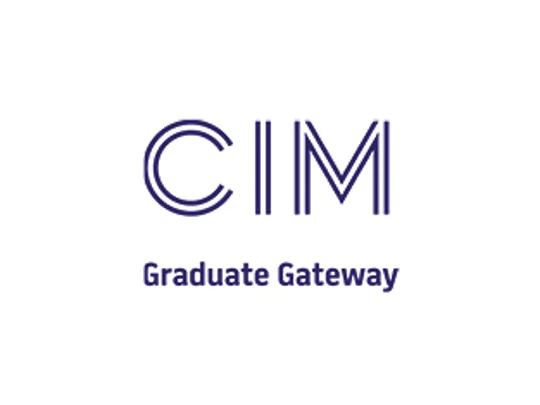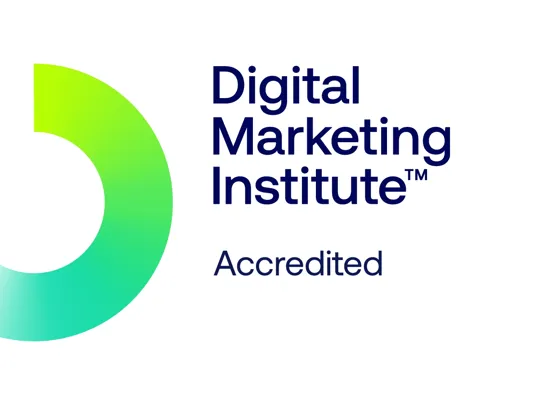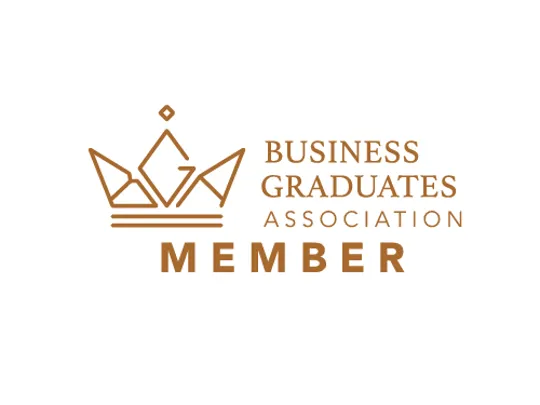of graduate employers say relevant experience is essential to getting a job with them

- University
- Undergraduate
- Courses
- Marketing BA (Hons) / FdA
Choose Award
Duration
3 years FT (4 years with placement)
Placement
Optional work placement
Entry
September, February
Fees
View fees
Choose Award
Duration
2 years FT
UCAS Code
N501
Entry
September, February
Fees
View fees

In 2022-24, there were over 146,000 job postings for managerial marketing roles (Lightcast data accessed 24.6.24 and 11.03.25).

The estimated number of sales, marketing and related associate professionals in the United Kingdom in 2021 was 784,300, increasing to 948,400 in 2024 – an increase of 21% (statista.com).
Our Marketing programme is designed to equip graduates with a range of digital, marketing, and management skills, including data analytics, content creation, search engine optimisation, artificial intelligence in marketing and networking and professional development in order to meet current and future demands of the industry. With the marketing and digital industry experiencing unprecedented growth, now is the perfect time to launch your career in this exciting and dynamic field.
The programme will introduce key concepts and cover the theoretical underpinnings associated with digital and traditional marketing management techniques. Students will be able to fully engage in industry relevant software whilst developing an understanding of underpinning theory and industry trends and developments. Our range of optional modules will enable you to develop expertise in particular areas and enhance your skills.
In partnership with the Digital Marketing Institute (DMI), and The Chartered Institute of Marketing (CIM) our Marketing degree offers you opportunities to engage in real-life projects and gain extensive real-world experience through an optional paid work placement, giving you a distinct advantage to help start your career.
£5k Cost of Living Allowance
At University College Birmingham, we believe the cost of living shouldn’t hold you back from achieving your goals. That’s why we’re providing UK full-time undergraduate students starting in February or September 2026 with £5,000 each to support expenses like food, bills, and transport - completely free, with no need to pay it back.

Pay early and save up to £4,500
International students applying for our BA/BSc undergraduate degrees, who meet all our deposit deadlines, can qualify for Early Action Scholarships of £4,500 or £3,500, depending on your course. Simply meet the payment deadlines and we'll do the rest - no application needed. International students can also apply for merit scholarships, worth up to the full amount of the tuition fee.
Why should I choose this Marketing BA (Hons) course?
- ENHANCE YOUR SKILL SET – Develop in-demand digital, AI, creative, and entrepreneurial skills through innovative modules designed to prepare you for the evolving marketing landscape
- INDUSTRY INFORMED TEACHING – Benefit from expert lecturers who are passionate about marketing, staying abreast of current trends to provide a supportive environment for your success.
- SPECIALISED LEARNING – Personalise your studies in your second and final years by selecting optional modules that align with your career aspirations and interests
- WORK PLACEMENT– Undertake an optional marketing placement to gain practical experience and enhance your career progression prospects.
- PROFESSIONAL CERTIFICATIONS – Take advantage of continuous learning opportunities and qualifications through our partnerships with The Chartered Institute of Marketing and the Digital Marketing Institute.
- NETWORKING – Enrich your study experience through networking with marketing professionals who deliver guest lectures or provide live client briefs for assessments.
- PROGRESSION – Benefit from the opportunity to continue your education with postgraduate programmes at UCB, ensuring continuity in your learning experience.
Our facilities
At University College Birmingham, you’ll learn in dynamic spaces - you'll have access to a range of cutting-edge facilities designed to sharpen your employability and prepare you for the modern marketing world. Develop essential digital, project management, entrepreneurial, and teamwork skills in dedicated, hands-on learning spaces, including:
-
Podcasting Booths – Create professional audio content and gain experience in one of today’s most dynamic marketing channels.
-
Design Studio – Bring your creative campaigns to life using industry-standard software and collaborative workspaces.
-
Enterprise Hub – Explore your entrepreneurial potential, connect with business mentors, and get support for freelancing or launching your own venture.
Course breakdown
Students on the FdA have the option of progressing onto the final year upon completion of the foundation degree.
- Year 1
- Year 2
- Year 3
- Year 3/4
Core Modules
Content Creation
When it comes to digital marketing, content is king. In this module, you will learn about the foundational principles of content production and develop an awareness and understanding of various visual communication techniques. You will also gain practical experience using commonly used content production applications to create promotional material for use on digital platforms.
Essentials of Marketing
Assuming the role of a marketing manager, you will learn how to make and justify a range of marketing decisions, as well as learn about market segmentation and marketing tactics within differing types of organisations. You will be able to appreciate and learn the importance of customer orientation and of satisfying customer needs in an increasingly competitive environment
Artificial Intelligence in Marketing
This introductory module explores the fundamental role of artificial intelligence (AI) in marketing, focusing on how AI applications are transforming customer engagement, campaign effectiveness, and personalisation strategies. You will learn AI concepts, discover popular AI tools in marketing, and understand how data can drive smarter decision-making. With a mix of theory and introductory practical skills, this module provides you with a solid foundation in AI’s role in marketing and prepares you for more advanced applications. By bridging AI theory with practical applications, this module prepares you to leverage AI for competitive advantage in marketing roles across various industries.
Marketing Communications
Understanding consumer behaviour is essential for effective marketing. In this module, you will learn how to identify, target, and communicate with specific consumer groups. You will develop vital marketing skills in areas such as consumer research, market segmentation, and creating consumer personas, all of which are crucial for building successful marketing campaigns. Additionally, you will explore the evolution of Integrated Marketing Communications (IMC) and how different types of content and creators can be used to establish emotional connections and build trust with consumers. Throughout the module, you will also reflect on and critically analyse the ethical and legal factors that influence marketing and its relationship with consumers.
The Marketing Environment
This module will provide you with an understanding of the complex and ever-changing marketing environment in which today’s marketing professionals function. You will learn about the diverse range of factors in the internal and external (macro and micro) environment, which impact marketing decisions. Using a technique called the “marketing audit”, you will learn how to analyse the marketing environment and sieve the key issues (i.e. threats, opportunities, weaknesses, and strengths) likely to impact marketing policies adopted by the audited organisation, product or brand. The marketing audit is the starting point for the marketing planning process. Hence, this module provides the foundation knowledge and skills you will require to successfully complete higher-level marketing modules that will focus on how to craft, implement and evaluate marketing plans.
Digital Influence and Social Media
In the evolving landscape of digital influence, this module will develop your understanding of social media’s role in shaping public opinion, brand perceptions, and consumer behaviour. You will gain a critical insight into digital influence strategies across social platforms, with a focus on how influencers, communities, and branded content create impact. This module covers the nuances of building authentic digital relationships and provides practical skills for campaign planning, content creation, and influence measurement. You’ll emerge equipped to navigate and harness the power of social media influence, a vital asset for modern marketers.
Core Modules
Contemporary Issues in Marketing
This module explores contemporary digital marketing and its relationship with politics, culture and society. You will examine current and emerging trends to develop an awareness of the evolving nature of the industry. This module also focuses on the need for sustainable and ethical marketing in the current climate.
Contemporary Consumer Behaviour
The overall aim of this module is to develop your understanding of consumer behaviour and its impact on marketing decisions undertaken by organisations. This module builds on the marketing modules completed at Level 4 of the programme and complements the international and strategic perspective characteristic of the final year modules.
Marketing Research
In this module you will explore the nature and scope of marketing research, including where and how marketing research fits with the other aspects of marketing management. The module will equip you with skills to undertake research and will focus on the practical application of the research process and the presentation of research findings.
Search Engine Optimisation
This practical module provides a comprehensive introduction to search engine optimisation (SEO), including essential techniques for enhancing website visibility and achieving higher search engine rankings. Covering both on-page and off-page SEO, as well as the latest developments in search technology, this module will equip you with the skills needed to conduct keyword research, optimise content, and assess SEO effectiveness. You will learn how to apply best practices for maximising search engine performance, resulting in improved visibility and return on investment (ROI) in search results. The module will also explore new concepts such as Social SEO and Generative Engine Optimisation (GEO).
Digital Campaign Management
In this module, you will learn how to effectively plan, execute, and manage the strategic and operational aspects of a digital marketing campaign. You will explore how to select the right tactics, channels, and tools for engaging digital consumers and achieving your business goals. Throughout the module, you will reflect on and critically analyse the impact of digital technologies and trends, as well as the implications of digital ethics and regulatory policies on campaign execution and management.
Plus one option from:
E-Commerce and UX Design
E-commerce has revolutionised the way in which customers interact with businesses. More than ever, it is important for brands to build a powerful online presence. This module will furnish you with the theoretical and practical knowledge required to build your own e-commerce platform and design optimised customer journeys which delight customers and keep them coming back to your website again and again.
Sales Management
This module is all about managing sakes including the setting of targets, tracking performance and ensuring customer satisfaction. You will gain a clear understanding of the role of sales teams within different organisations, as well as the different types of buyers and how to sell to them. In light of the ever-increasing 'internationalisation' of business, you will also be looking at sales from an international scope and explore theoretical perspectives of buying and selling.
Interactive Media
Interactive media is an increasingly important part of any content strategy and covers a wide range of digital products and services. This module will allow you to develop your own creative practice in interactive media (making games, interactive film, digital storytelling or any other medium) in a guided interactive media project of your own devising. Building on many of the technical and creative skills developed so far, this module will take you through the key stages of developing an interactive media project from ideation and concept definition, through to proof of concept and prototype delivery.
Advertising Psychology
How do advertisers persuade customers to buy? You will learn about advertising psychology in the context of persuasive communication, developing a deeper level of understanding about the cognitive processes involved when dealing with persuasive communication. This will allow you to analyse these processes and to apply your knowledge in a specific marketing context.
Optional Work Placement (BA only)
Work Placement (optional - for BA (Hons) students only)
Our course offers you the chance to undertake a paid 48-week placement to give you invaluable first-hand experience in the industry. In your Skills for Success sessions, you will be provided with the essential skills and tools to apply and secure your own placement (with support from hired@UCB).
Core Modules
Leadership Skills in Marketing
In an increasingly fast-paced and changing environment, it is more important than ever that a business leader can navigate the business to a successful future. This module develops your understanding of the role of leadership in conceptualising, designing and instituting effective change within organisations. You will evaluate different change management tools in supporting businesses to seize new opportunities and manage threats.
Marketing Analytics
Big data is an increasingly important feature of modern business. Organisations now utilise increasingly sophisticated data management and analytical processes to help them make strategic decisions and maintain efficient business practices. This module aims to help you identify and make sense of meaningful patterns in data sets and will familiarise you with the analytical tools and techniques to support evidence-based decision-making. The focus of this module is on digital marketing analytics, such as the use and analysis of website and social media metrics, however more generally this module will help you develop the analytical skills and data competence increasingly demanded by industry.
International Marketing
We live in an interconnected world, so it's important to examine how organisations explore new market opportunities beyond national boundaries. The international environment is dynamic, diverse, disruptive with often a 'crisis' environment which will impact the marketing strategies adopted when seeking a foothold in a new country.
Marketing Project
The Marketing Project is a practically focused and theoretically informed research project. You will focus on a contemporary marketing issue and generate an innovative solution. In doing so, you will be encouraged to explore an area of marketing which interests you and produce an informed report, evaluating the relative merits and feasibility of the approach/strategy/technology under investigation.
Choose two options from:
Public Relations (PR)
In any modern campaign, marketing and public relations (PR) are expected to work together seamlessly. In this module, you will explore communication theory and examine how PR has evolved into the vital management function it is today. You will learn how to plan, implement, and evaluate a PR strategy while understanding the interaction between PR and marketing. Additionally, you will delve into key features and applications of PR specialisms, including Corporate Social Responsibility (CSR) and Crisis Management. You will also reflect on and critically analyse the ethical, legal, and environmental factors that influence PR practices and how these may shape the profession's future. Throughout the module, you will learn to create engaging PR content for digital and traditional media channels.
Freelancing
In this module you will focus on understanding what it means to be a freelancer and what the Gig economy is. Live talks from freelancer alumni who have experienced success and freedom from this style of self-employment will be embedded into the sessions. You will learn the key concepts of ideation and business planning, validated market research for freelancers, the marketing, business and financial aspects of self-employment. You will learn the value of networking, social capital and partnerships.
Brand Management
The module embraces how brands are viewed, built, managed, and measured to ensure firms' superiority and sustainability in profits. Furthermore, given that luxury brands are one of the fastest growing areas of global business, this module also develops an appreciation of how luxury brands have evolved over time and place, and introduces the material, symbolic and experiential dimensions of luxury brands across a variety of industry sectors.
Podcasting and Audio Production
Podcasting has been growing in terms of audience reach and size year on year and this presents a huge opportunity for publishers, marketers and communication professionals to connect with audiences via this new media platform. Lectures and practical workshops will be geared towards producing a professional produced promotional podcast, within a style and genre of your choice. Along the way, you will learn a range of audio production skills, including digital audio, editing and mixing skills.
Managing Online Communities
Building on previous modules that examined the motivations and behaviours of consumers in relation to online community management, this module inspects all aspects of online community engagement, from initially fostering online communities, to building and growing a productive digital community to merging offline and online activity management. Crisis management of online communities is also explored
The modules listed above for this course are regularly reviewed to ensure they are up to date and informed by industry as well as the latest teaching methods. On occasion, we may need to make unexpected changes to modules – if this occurs, we will contact all offer holders as soon as possible.
Entry requirements
Marketing BA (Hons)
A-levels: An A-level grade profile of BBC.
T-levels: A T-level graded Merit with a core component of grade C.
BTEC: A BTEC grade profile of DMM. This can be achieved from either an Extended Diploma or a combination of smaller BTEC qualifications.
Tariff: Other Level 3 qualifications are accepted for entry. A minimum of 112 UCAS Tariff points will be required.
Access to Higher Education Diploma: 112 UCAS Tariff points, including a minimum of 15 Level 3 credits at Distinction.
Marketing FdA
A-levels: An A-level grade profile of DD.
T-levels: A T-level graded Pass with a core component profile less than C.
BTEC: A BTEC grade profile of PP. This can be achieved from either an Extended Diploma or a combination of smaller BTEC qualifications.
Apprenticeship: Achieve an advanced apprenticeship (Level 3).
Tariff: Other Level 3 qualifications are accepted for entry. A minimum of 32 UCAS Tariff points will be required.
Access to Higher Education Diploma: 32 UCAS Tariff points.
Non-tariff: Non-UCAS Tariff-based Level 3 qualifications are also considered for entry. Please complete our enquiry form here to check your eligibility.
Work-based: We also give equal consideration to applicants who are currently in work and wish to apply to University College Birmingham. To apply, you must have a minimum of 3 years’ relevant work experience, demonstrating management or supervisory duties. Your application must also include a reference from your line manager supporting your entry to higher education. For further details, please contact Admissions.
International students
For academic and English entry requirements for EU and international students, please visit the Country Specific Information page.
Please note: As an International Student, when choosing optional placement, a visa extension may be required.
Key information
Teaching and assessment
Note: Indicative information only – actual timetables and assessment regimes will be issued at your induction.
Teaching
Example of a typical teaching week (up to 11 contact hours):
Teaching method 1 – 9 hours (Large group teaching and smaller group seminars/workshops)
Teaching method 2 – 2 hours (Tutorials and graduate advantage)
You will also need to commit around 20 hours per week for individual study time.
Please note that the time required for field trips and visits is not included in the above.
Assessment
Estimated breakdown of assessment for this degree course:
- Coursework – 86%
- Practical assessment – 8%
- Written examinations – 6%
Our teaching and assessment is underpinned by our Learning and Teaching Strategy 2025-2030.
Timetable
We understand that you need to balance study with work, so wherever possible your lessons will be timetabled into 2-3 days a week.
Tuition fees for home students
If you are a home student enrolling on a bachelor's or foundation degree course at University College Birmingham, the 2025/2026 academic year tuition fee for full-time study is £9,535. For part-time study, the fee is £4,767.50.
Tuition fees for international students
If you are an international student (or have been fee assessed as an international fee payer) and are enrolling on a full-time [Band 1] bachelor's degree course in 2025/2026, the fee for the academic year will be £16,000. If you complete a placement year, there will be an administration fee of £500 for a full year or £250 for a half-year placement.
Free £5,000 cost of living allowance
We are committed to supporting students who may be facing financial challenges due to the rise of living costs. If you are a full-time undergraduate student starting your course in February or September 2026, with home fee status and plan to pay your fees using a student loan, you’ll be eligible a £5,000* Cost of Living Allowance.
Further information and frequently asked questions can be found here: £5,000 Cost of Living Allowance
*If you are studying a two-year foundation degree, you will receive £2,000 in instalments each year of your course. If you decide you'd like to top up to a full BA or BSc (Hons) at the end of your foundation degree, you will also be entitled to the £1,000 in the third year.
Kick-Start Scheme
As a new student studying this course full-time, you will receive £300 per year through our Kick-Start Scheme (UK students only, eligibility criteria applies). This scheme will support your studies and future career by contributing to course-related materials, uniform or selected items on campus. You may also qualify for an additional £500 per year.
Find out more about the Kick-Start Scheme here.

University College Birmingham is accredited by the Chartered Institute of Marketing.

University College Birmingham is a member of the Digital Marketing Institute.

University College Birmingham is a member of the Business Graduates Association.
Accreditations, endorsements and partnerships
University College Birmingham works with a wide range of organisations to ensure you receive the best possible training and qualifications recognised by industry.
.
Work placements
Work placements are vital for gaining real-life experience and for building your confidence and skills before you finish your course – and they may even lead to a job when you graduate. Our HIRED team can help find the ideal placement for you.
Our FdA and BA Marketing course offers you the option of a paid 48-week work placement, during which you will not incur any tuition fees.
Work alongside experts in your sector
A snapshot of some of the employers we have worked with:
- Planeta Huerto SL (Spain)
- The Royal Society of Medicine (London)
- CA Technologies (Berkshire)
- Beyond Beauty (Birmingham)
- Koala Digital Limited (Essex)
- National Highways (England)
- Cognition Consultancy (London)
- Urban Flavour Tea House (Birmingham)
- Owen Mumford Ltd (Oxfordshire)
The Marketing programme responds directly to the growth in digital marketing and fast-developing tools and technologies that are becoming commonplace. A keen eye on 'next steps' and opportunities weaved in for industry exposure mean students will be actively thinking about the job market and how best to position and prepare themselves for a successful career
Lynsey Hunt Slade, External Affairs Lead, Midlands and East of England, National Highways
Career opportunities
The example roles and salaries below are intended as a guide only.
Purchasing managers
Average Salary: £45,000
Marketing manager
£40,000 - £50,000
Advertising account managers
Average Salary: £35,000
Data analyst
Average Salary: £32,500
Content strategist/manager
Average Salary: £43,000
Digital trust and privacy analyst
Average Salary: £40,000
Want to take your studies to the next level? Completing the BA (Hons) degree will enable you to move onto our postgraduate courses, such as Enterprise Management MSc/PGDip, Marketing, Events, Hospitality and Tourism MA/ PGDip, International Business Management MSc/ PGDip or Luxury Brand Management MA/ PGDip

Use of AI in teaching
Discover how our lecturer Rohim is leading the way in using AI to transform university teaching—helping students like you get career-ready with cutting-edge skills.
Meet your lecturers





Other courses you may like
Business Enterprise BA (Hons) / FdA
Dream of being your own boss? If you aspire to set up your own company or advance in management positions throughout the enterprising service sector, this course will provide you with the core knowledge and skills to thrive in business.
Finance and Accounting BSc (Hons) / FdSc
Aspiring to become an accountant or work in the finance sector? This course arms you with specialist knowledge and practical skills for these fields, offering the option of a year-long placement and opportunities to apply for exemptions from a range of professional exams.
